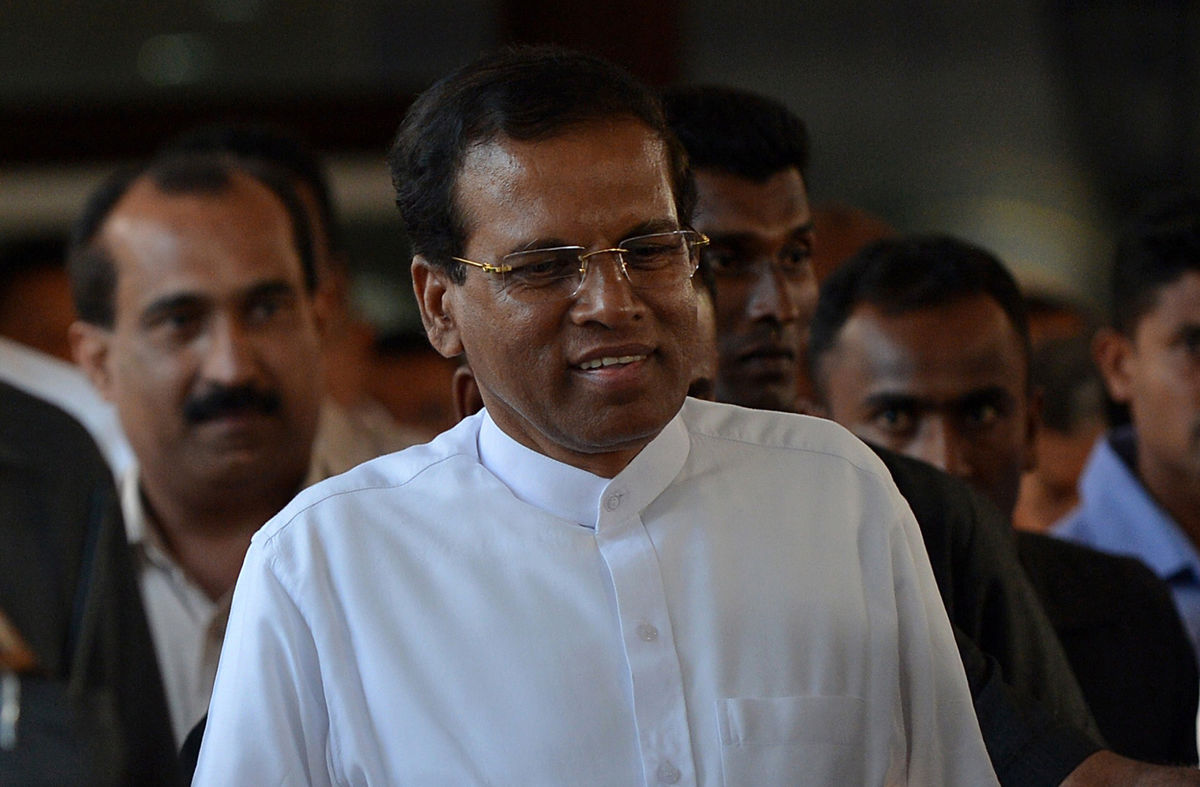June, 29, 2015

Sri Lankan President Maithripala Sirisena dissolved parliament and called early elections for Aug. 17 after failing to push through changes to the country’s voting system he promised after taking power six months ago.
The decision was announced in a so-called gazette on the government website late Friday. It came before lawmakers voted on a constitutional amendment to make local elections more representative.
The vote is unlikely to give any party a parliamentary majority, leading to more instability after Sirisena ended his predecessor’s decade-long rule in January. The country’s benchmark stock index has been among Asia’s worst performers this year as Sirisena proposed a windfall tax on company profits, higher public-sector wages and less public investment.
“The new government will likely resort to further slashing infrastructure investment while raising some taxes on large firms, steps likely to depress potential GDP growth rates,” Sasha Riser-Kositsky, a Washington-based analyst at Eurasia Group, wrote in a June 12 note. “In this context, any new populist election promises would put further pressure on the budget deficit in the year ahead.”
The International Monetary Fund in May projected that Sri Lanka’s economic growth will slow to 6.5 percent this year from 7.4 percent in 2014, saying the island’s fiscal deficit is a “key concern” in the medium-term.
Sirisena has been governing with a minority coalition in a parliament left over from the administration of the man he defeated, former ally Mahinda Rajapaksa. Their fallout has divided the Sri Lanka Freedom Party, which leads an alliance that controlled about two-thirds of the 225-member parliament.
Presidential Powers
The mandate of the outgoing chamber wasn’t due to expire until 2016. Sirisena, who accused Rajapaksa of nepotism and corruption, promised to prune presidential powers and overhaul the method of choosing lawmakers within his first 100 days in office, a period that expired on April 23.
He’s been partially successful. Lawmakers in April voted to revert to a two-term limit and dilute the president’s influence over the judiciary, military and bureaucracy.
Sirisena has also shifted Sri Lanka away from China’s orbit. He’s suspended China-led infrastructure projects commissioned under Rajapaksa’s administration, including a $1.4 billion port city, the nation’s largest foreign funded project on record.
Other measures have stalled. Most significantly, he failed to get a vote on an amendment that would increase the number of parliamentary seats to 237, with most elected under a first-past-the-post system instead of the current system of proportional representation by district.
The new parliament will meet for the first time on Sept. 1, the government said.
Bloomberg-by Anusha Ondaatjie
Video Story